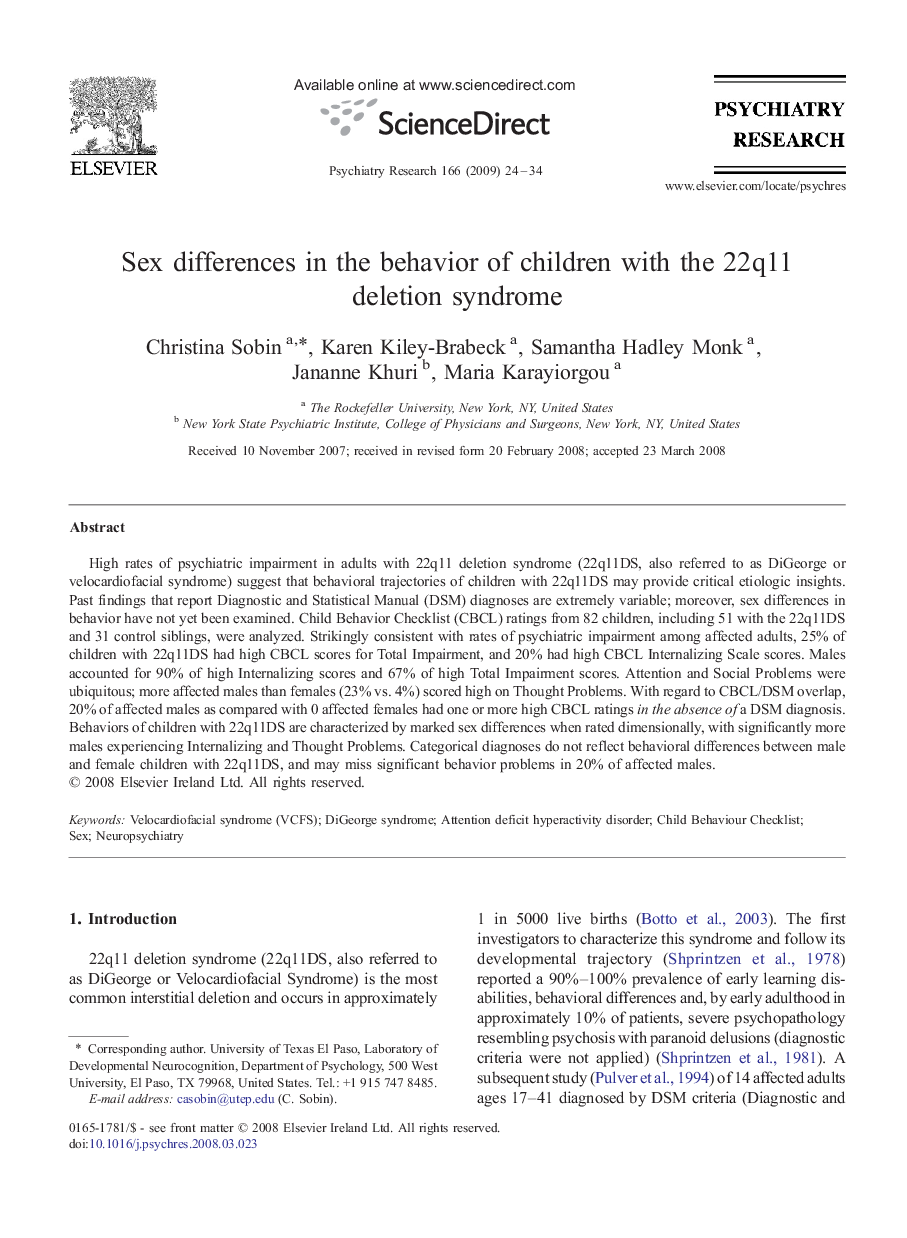| Article ID | Journal | Published Year | Pages | File Type |
|---|---|---|---|---|
| 334230 | Psychiatry Research | 2009 | 11 Pages |
High rates of psychiatric impairment in adults with 22q11 deletion syndrome (22q11DS, also referred to as DiGeorge or velocardiofacial syndrome) suggest that behavioral trajectories of children with 22q11DS may provide critical etiologic insights. Past findings that report Diagnostic and Statistical Manual (DSM) diagnoses are extremely variable; moreover, sex differences in behavior have not yet been examined. Child Behavior Checklist (CBCL) ratings from 82 children, including 51 with the 22q11DS and 31 control siblings, were analyzed. Strikingly consistent with rates of psychiatric impairment among affected adults, 25% of children with 22q11DS had high CBCL scores for Total Impairment, and 20% had high CBCL Internalizing Scale scores. Males accounted for 90% of high Internalizing scores and 67% of high Total Impairment scores. Attention and Social Problems were ubiquitous; more affected males than females (23% vs. 4%) scored high on Thought Problems. With regard to CBCL/DSM overlap, 20% of affected males as compared with 0 affected females had one or more high CBCL ratings in the absence of a DSM diagnosis. Behaviors of children with 22q11DS are characterized by marked sex differences when rated dimensionally, with significantly more males experiencing Internalizing and Thought Problems. Categorical diagnoses do not reflect behavioral differences between male and female children with 22q11DS, and may miss significant behavior problems in 20% of affected males.
